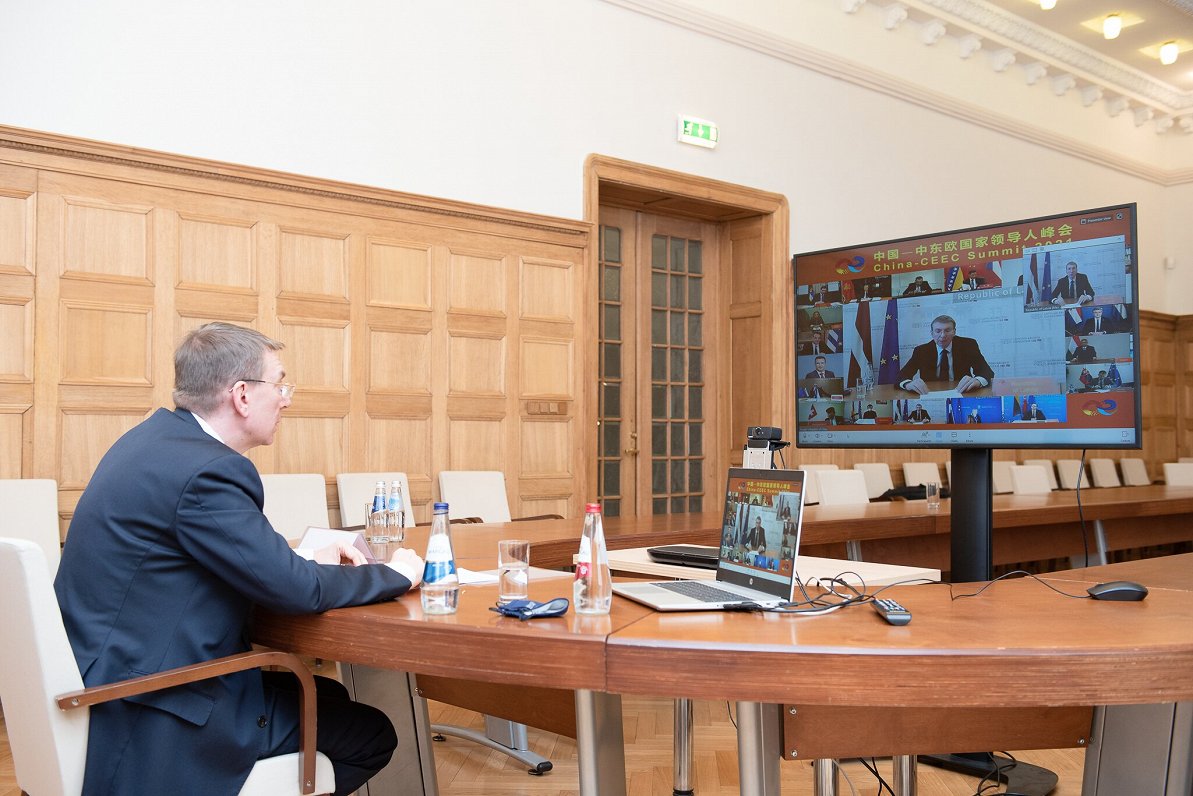But the latest incarnation of the event passed with considerably less pomp and ceremony on Febraury 9, 2021 in the form of an online conference call.
The event was hosted by China and chaired by the President of China himself, Xi Jinping, but this time around not all of the so-called 17+1 participants put heads of state or even heads of government in front of their webcams.
Latvia was represented by Foreign Minister Edgars Rinkēvičs. According to a ministerial press release that does not quote him directly: "The Latvian Foreign Minister pointed out that for Latvia, as an EU Member State, it is essential to develop economic cooperation with China while upholding principles of fair competition, reciprocity, and human rights."
Whether the crackdown on dissent in Hong Kong or the persecution of the Uighur ethnic minority in internment camps were discussed in connection with human rights is not mentioned.
"Within the CEEC-China cooperation format, Latvia expects to see trade and investment relations with China developing in a balanced manner and based on the principles of market economy. Latvia is interested in achieving sustainable solutions in transport and logistics linking Europe and Asia so that a steady flow of goods and services is ensured. Minister Rinkēvičs emphasized that during the time of a pandemic, it is quite important to maintain the cultural contacts already established while utilising innovative and digital means to further those contacts," the statement said.
According to the text of Xi Jinping's speech, the initiative is "guided by the conviction that '17 plus 1 could make more than 18'."
He also floated the idea of the establishment of a China-CEEC customs information center and a focal point for customs clearance coordination for countries along the China-Europe Land-Sea Express Line and cooperation on a pilot basis under the "Smart Customs, Smart Borders and Smart Connectivity" Initiative.
"China and CEE countries share the conviction that openness brings opportunities and inclusiveness ensures diversity," he also stated, adding a line shortly afterwards that might not have been heard with unalloyed pleasure among his audience of former Communist-controlled countries:
"This year will be the beginning of China's 14th Five-Year Plan for economic and social development, and the start of the country's new journey toward fully building a modern socialist country."
Predictably, the China Daily newspaper, which is owned by the Chinese Communist Party, lauded the online summit and the format itself as a tremendous achievement in a lengthy piece with pictures of numerous officials keenly following the conference call behind long tables within vast halls. The images provided a sharp contrast with the Latvian end of the line where Minister Rinkēvičs was pictured alone in front of a laptop.
The newspaper cited Chinese Vice-Foreign Minister Qin Gang saying that nearly 90 deals on practical cooperation with a total value of $13 billion were reached during the summit involving such areas as transportation, infrastructure, finance, agriculture and science and technology.
"The deals reflected the specific needs and expectations of CEE countries," Qin said, according to China Daily.
Qin also said that several countries had expressed their need for vaccines and that China was ready to provide vaccines according to its production capability.
The 17+1 states are China plus Bulgaria, Croatia, Estonia, Hungary, Latvia, Lithuania, the Czech Republic, Poland, Romania, Slovakia, Slovenia, Greece, Albania, Bosnia Herzegovina, North Macedonia, Montenegro and Serbia. The last CEEC-China summit took place in April 2019 in Dubrovnik, Croatia.





























